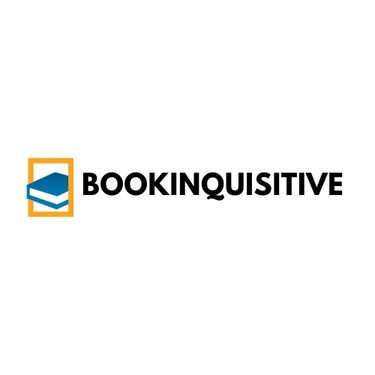"I am not actually tired, but numb and heavy, and can’t find the right words. All I can say is: Stay with me, don’t leave me." -Franz Kafka
"I always think that the best way to know God is to love many things. ” - Vincent Van Gogh For my part I know nothing with any certainty, but the sight of the stars makes me dream. ~ Vincent Van Gogh
2/24/20255 min read


Understanding the Significance of Recommitment
Recommitment serves as a pivotal concept in our continuous pursuit of societal progress. The act of rededicating oneself to a set of core values—specifically truth and hard work—invokes both a reflection on our historical foundations and a vision for future advancements. Throughout history, numerous dates have held great significance, marking milestones that shaped our nation and its collective identity. These moments offer a poignant reminder of the sacrifices made by those who came before us, as well as the principles they upheld in the face of adversity.
In the context of democracy, recommitment is not merely an aspirational notion but rather a necessity for its preservation and growth. Engaging in this rededication allows individuals and communities to reaffirm their allegiance to the ideals that underpin our governance and social cohesion. The foundations of truth are paramount; it enables transparency and inspires trust among citizens, fostering an environment where constructive dialogue and collaboration can thrive. Hard work, on the other hand, embodies the spirit of diligence and perseverance that propels innovation and economic growth. Together, these values function as essential pillars that can support our collective progress.
As we look back on past achievements—such as the civil rights movement, which laid the groundwork for a more inclusive society—we must also confront the challenges that remain. Contemporary issues, including inequality and misinformation, underscore the ongoing need for a robust recommitment to our core values. Only by embracing this rededication can we effectively navigate the complexities of today's world and strive toward a more just and equitable future. Thus, understanding the significance of recommitment invites us to reflect meaningfully on our past and actively shape our shared destinies through unwavering dedication to truth and hard work.
The Dangers of the Pretense of Knowledge
The pretense of knowledge, a concept often attributed to the philosopher Friedrich Hayek, refers to the misguided belief that one possesses a comprehensive understanding of complex systems. This dangerous vice can significantly hinder progress, as it fosters complacency and stifles the potential for growth and innovation. When individuals or societies operate under the assumption that they have a complete grasp of a subject, they are less likely to engage in further inquiry, thus limiting their opportunities for improvement.
Historical examples abound where the pretense of knowledge has led to grave consequences. Consider the early 20th-century economists who adhered rigidly to classical economic theories, ignoring emerging evidence that questioned their assumptions. This adherence culminated in policies that exacerbated the Great Depression rather than facilitating recovery. Such instances illustrate how a false sense of certainty can prevent the acceptance of new ideas, ultimately impeding progress.
Moreover, in contemporary society, the rapid advancement of technology and globalization has underscored the complexity of knowledge. Yet, as more individuals and institutions adopt the pretense of knowledge, the risks associated with this mindset become more pronounced. In an era characterized by misinformation, overconfidence in our understanding can lead to poor decisions, both at personal and collective levels. For example, organizations that resist adapting to new market trends because of a misplaced sense of expertise often find themselves outpaced by more agile competitors.
Humility in the pursuit of knowledge is vital to counteracting the dangers of this pretense. Embracing the idea that our understanding is perpetually evolving allows for flexibility and adaptability, essential traits in navigating an increasingly complex world. By fostering a culture of inquiry, we can create avenues for collaboration and innovation, breaking free from the constraints that the pretense of knowledge imposes. In recognizing our limitations, we open ourselves to learning and growth, ultimately enhancing our potential for success.
The Role of Self-Assessment in Personal and Societal Growth
Self-assessment serves as a critical tool for fostering both individual and societal growth. Through introspection and honest evaluation, individuals can identify their strengths and weaknesses, which is fundamental in cultivating self-awareness. This process not only enhances personal development but also contributes to the advancement of communities and organizations. By engaging in studious self-assessment, a culture of accountability emerges, where both individuals and groups can take ownership of their actions and decisions.
One effective method of conducting self-assessment is through goal-setting and reflection on past achievements. Setting clear, achievable objectives helps maintain focus and direction. Periodically revisiting these goals allows individuals to measure progress and make necessary adjustments. This practice encourages critical thinking about one's experiences, which in turn leads to improved decision-making and greater clarity in future endeavors.
In corporate settings, self-assessment can also be implemented at the organizational level. Companies can initiate performance reviews that facilitate an open dialogue about their operations. Employees should be encouraged to evaluate their own contributions and the overall effectiveness of the team. Such assessments can reveal areas requiring improvement, encourage collaboration, and fortify collective commitment to collective objectives.
Moreover, incorporating feedback mechanisms is instrumental in the self-assessment process. Gathering insights from peers, supervisors, or community members enriches understanding and promotes a culture of continuous improvement. Organizations that actively seek and integrate feedback demonstrate a willingness to evolve, thus creating a supportive environment that nurtures innovation and resilience.
Ultimately, regular self-assessment enables both individuals and organizations to adapt to changing circumstances. By fostering an atmosphere of reflection and accountability, we can ensure renewed focus on our commitments, driving positive change in our personal endeavors and within the broader societal context.
Moving Forward: Actions We Can Take Today
As we navigate the complexities of modern life, it is imperative to take proactive steps that foster truth and diligently engage in our work. The foundation of a thriving society lies within the collective action of its individuals. Therefore, we must prioritize meaningful dialogues with those around us. These discussions can be a catalyst for change, allowing us to exchange perspectives and challenge preconceived notions, ultimately promoting a culture of understanding and respect. Engaging in open and respectful communication can dismantle barriers and build bridges, facilitating unity within diverse communities.
In addition to fostering dialogue, individuals are encouraged to participate actively in community service initiatives. Volunteering not only provides us with the opportunity to make tangible contributions to our neighborhoods, but it also helps in cultivating a sense of responsibility and connection to others. By allocating time to serve those in need, we are making a recommitment to the principles of empathy and cooperation that bind us together as a society. Community service projects might range from local clean-up initiatives to mentorship programs, each enriching our collective experience while reinforcing the importance of hard work.
Embracing lifelong learning is another crucial component of our recommitment to truth and work. In an era characterized by rapid change, pursuing knowledge enables us to adapt, evolve, and overcome ignorance. By nurturing a curiosity about various subjects and engaging in educational opportunities—whether through formal courses, workshops, or self-directed study—we not only empower ourselves but also set an example for future generations. This commitment to continuous growth reflects our dedication to upholding the values on which our society was founded.
In summary, by actively participating in dialogues, dedicating time to community service, and prioritizing lifelong learning, we can robustly recommit ourselves to the ideals of truth and work. Our collective efforts today will shape a more informed and united future.
Growth
Unlock your agency's potential with Uphex today.
Design
Research
+1234567890
© 2025. All rights reserved.
